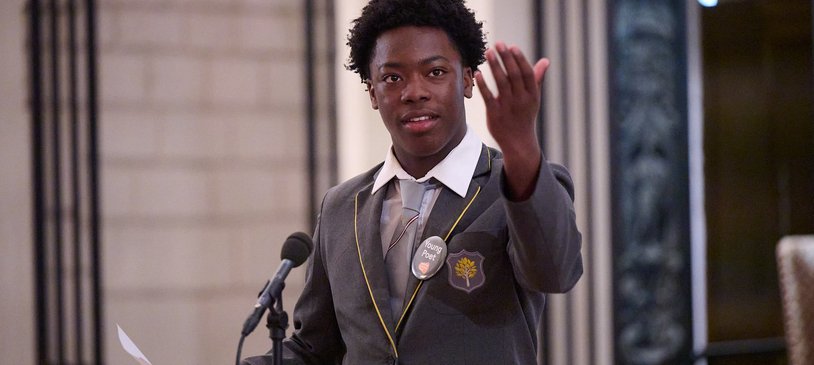Every child, regardless of their background, should be empowered to find, develop and express their authentic voice.
Research shows that children who are supported to develop strong language skills in their earliest years are more likely to succeed in school and work and lead happier lives.
Yet, last year, the statistics were bleak:
- almost a third (31%) of five-year-olds started primary school without the language, communication and literacy skills they need to thrive
- this statistic rises to almost half (47%) of children from disadvantaged communities
This is a gap many children won’t recover from.
Supporting children to develop good language and communication skills from birth and through all phases of their education is fundamental for ensuring that every child is equipped with the literacy skills they need to thrive in the modern world.
Our latest policy report
Creating confident communicators: How the government can help every child find their voice
In the face of this growing disparity, we have launched a new report into oracy. This also sits against the backdrop of the Government’s recent announcement to review the curriculum and assessment system. The Prime Minister has expressed an ambition to “put confident speaking skills at the heart of what we teach our children” and a clear goal to deliver a curriculum that is rich and broad, inclusive and innovative, and which develops children’s knowledge and skills.
Our new oracy report is the National Literacy Trust's first contribution to this important national debate. It provides a roadmap for policy reform that, if implemented with sufficient funding and consideration, will ensure that every child can access an integrated pathway of speech, language and communication support from birth to 18.
Executive summary
Extensive research underscores the deep connection between language and literacy in shaping young minds. Children who struggle with language at age five are six times more likely to fall behind in reading and writing by the age of 11.
If, as a country, we want more young people to leave school with confident speaking skills, then they need to be able to access an integrated pathway of speech, language and communication support from 0 to 18.
This report, with a forward by Hon. Dr Stuart Lawrence, outlines how the government can help every child find their voice by setting out ten evidence-based policy recommendations that we think would shift the education system in the right direction.
How our work is already developing children’s oracy skills
At the National Literacy Trust, we define literacy as the ability to read, write, speak and listen in a way that enables us to communicate effectively and make sense of the world. We work with children, young people and adults across the UK, with a particular focus on communities with low levels of literacy and high levels of socio-economic deprivation.
This report highlights some of the best examples of our charity's work. We are committed to supporting families from birth in programmes and campaigns like Early Words Matter and Early Words Together to enriching the school curriculum through creative and inspiring poetry-led workshops such as the West Yorkshire Young Poet Laureate Programme, or equipping teachers with expert training to develop oracy in a primary setting.
Words for Work is another vital part of our portfolio, ensuring older students in KS3, KS4 and post-16 settings are empowered and equipped with the literacy skills they need to thrive, find employment beyond education and set themselves up for a future bursting with opportunity.
Powerful, oral workshops, programmes and experiences targeted at those in the prison community or young people facing exclusion are also a key part of our current work.
What happens next?
Over the next 12 months, we plan to work with partners from the public, private and voluntary sectors to inform the government’s curriculum and assessment review.
If you would like to take part in these discussions, please email us at policy@literacytrust.org.uk.
